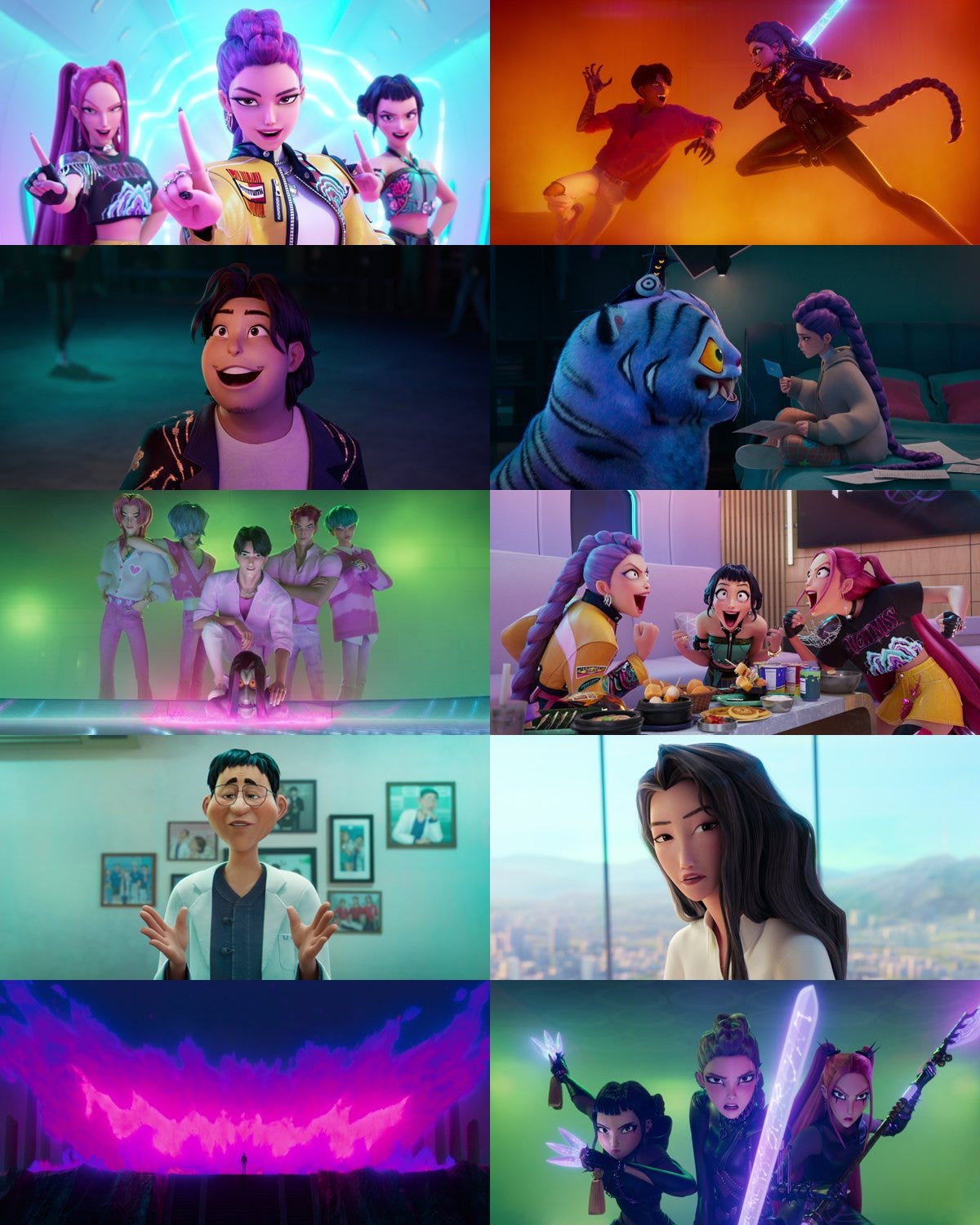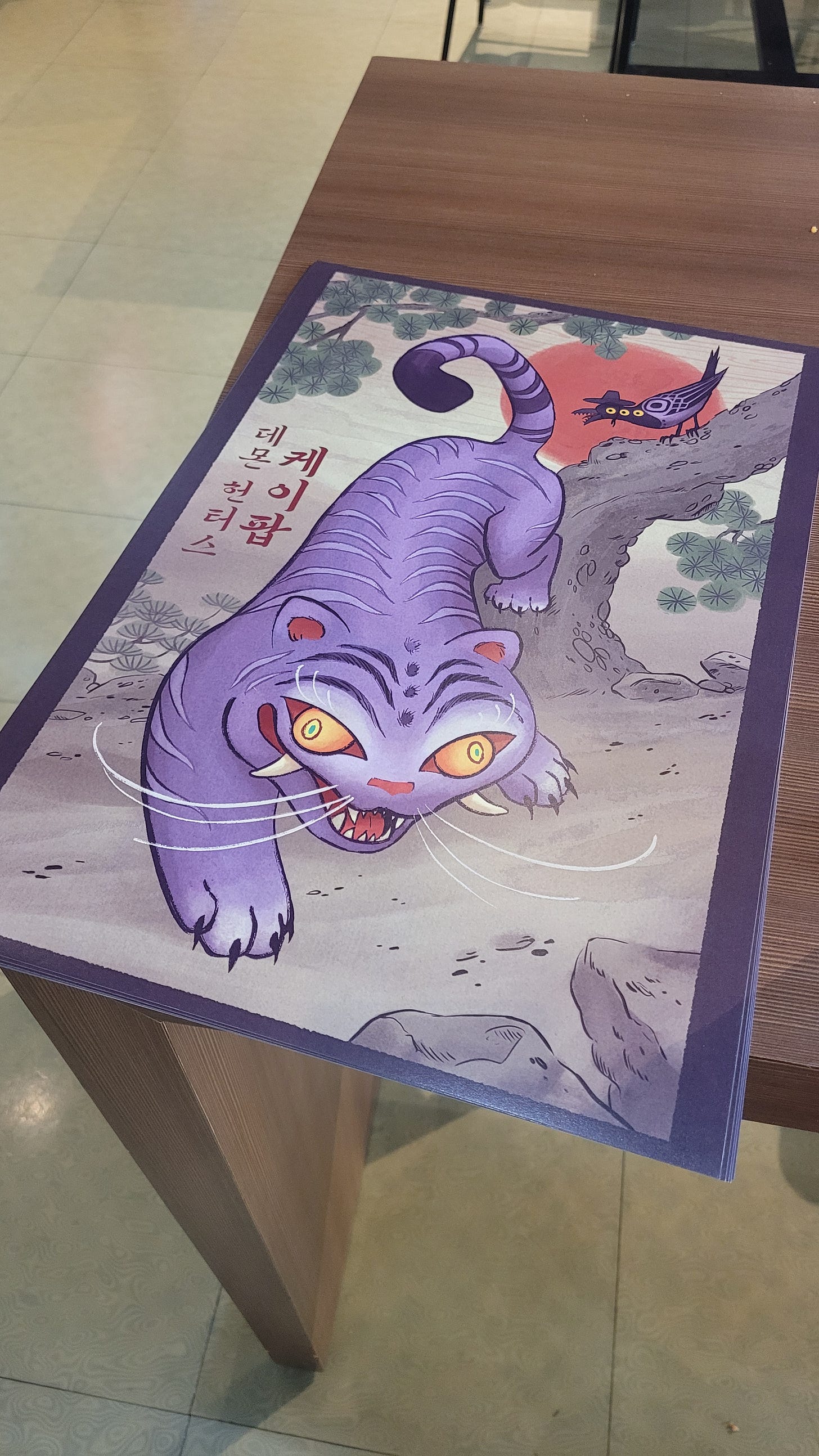KPOP Demon Hunters – The Promise of a Strange Fusion Between K-pop and Fantasy
A creator’s perspective on how a hybrid of Korean mythology, pop music, and global animation became something more than genre play
A K-pop girl group that hunts demons.
At first glance, it might sound like a character-driven pitch targeting mass appeal. But this project aims higher.
Blending musical, action, and fantasy genres, KPOP Demon Hunters places Korean pop culture at the center of its narrative experiment. It's a bold attempt to explore how the “Korean aesthetic” might be reinterpreted and reconstructed for a global audience.
As one of the artists involved in the early design, look development, animation, and final rendering of this project, I had the rare experience of watching the film both as a creator and, recently, as a viewer during its preview screening in Vancouver.
K-pop Meets Korean Mythology
When I first joined the project, I was as curious as I was skeptical. Could K-pop and demon hunting really work together?
Even in the early concept stages, it became clear that this was a cleverly constructed world. Through countless revisions and refinements, the project matured into a film with remarkable sophistication—narratively, musically, and visually.
The trope of a girl group living a double life as demon hunters draws from superhero narratives. But here, it is grounded in Korean mythology, pop culture, and visual language. It feels immersive—never artificial.
Music That Serves the Story
Musicals often risk disrupting narrative flow or emotional immersion—especially in animation. Characters bursting into song mid-scene can pull audiences out of the moment.
But KPOP Demon Hunters cleverly avoids that trap. Thanks to the girl group setting, the film has a built-in logic for musical performance. The songs don’t interrupt; they emerge from the story’s emotional logic.
Each track is sleek, pop-infused, and tonally appropriate—none feel like filler or forced interludes. Even for viewers who aren’t musical fans, the narrative integration is convincing.
Seoul as a Character
This isn’t just a movie “set in Korea.”
From the streets of Jongno and subway platforms to high-rise apartments, hanoks, bathhouses, and steaming bowls of food—KPOP Demon Hunters brings Seoul to life not as a setting, but as a living environment.
Details like handwritten Korean signage add texture, but also remind you: this is a Hollywood-made film rooted unmistakably in Korea. And that tension is fascinating.
Choreography and Costumes: An Animation Showcase
The dance sequences are one of the film’s technical highlights.
Both the girl and boy groups appear in varied costumes, executing tightly timed, complex choreography with precision.
These scenes demanded high-level coordination between rigging, animation, lighting, and cinematography—bringing real-world K-pop energy to the screen without distortion or caricature.
Food as Emotional Texture
Food isn’t just part of the backdrop—it’s part of the emotional arc.
Whether it’s used for humor or sorrow, dishes like kimbap, ramyeon, bingsu, and gukbap are visual and cultural anchors in the story.
From look development to texturing, these elements were crafted with care—and they contribute powerfully to both immersion and emotional resonance.
To Korean audiences, they spark familiarity and pride.
To global viewers, they offer a fresh sensory entry point into a culture rarely rendered this richly in animation.
Tight Runtime, Dense Story
With a runtime of about 83 minutes, the film feels lean but full.
Worldbuilding, emotional arcs, villains, group dynamics, and music all unfold without clutter or confusion.
One especially notable feature is the film’s attempt to move away from the conventional Hollywood arc.
Romantic tropes are filtered through Korean sensibilities, giving the structure a distinct flavor not often seen in global animated features.
Final Thoughts
KPOP Demon Hunters is more than just K-pop-themed content.
It’s a thoughtful answer to a difficult question:
How do we express Korean identity through global storytelling?
It doesn’t turn culture into kitsch.
It uses genre and technology to render culture with integrity, not in spite of it.
As both a creative contributor and a cultural critic, this project left me reflecting deeply on how “Korean stories” can evolve on the world stage.
KPOP Demon Hunters premieres June 20, 2024, on Netflix.
If possible, don’t watch it on your phone. Give it a real screen, a good sound system, and your full attention.
There’s more I’d like to share, especially behind-the-scenes stories—but that will come later.
🍿 Until then.
Special poster ‘DERPY TIGER’
The clumsy guardian from Korean myth.






